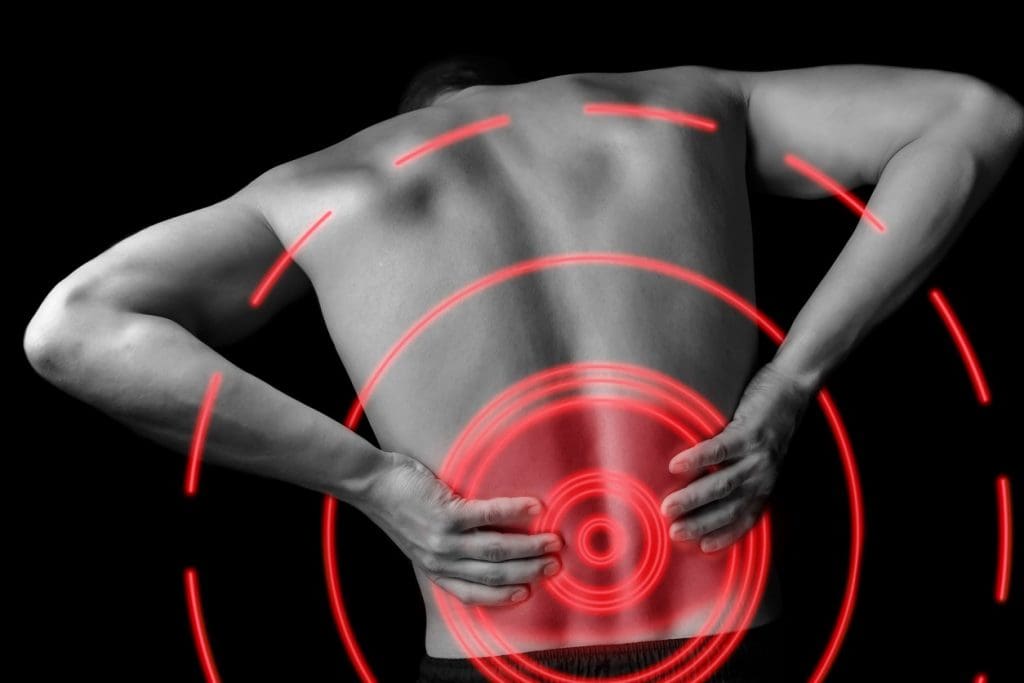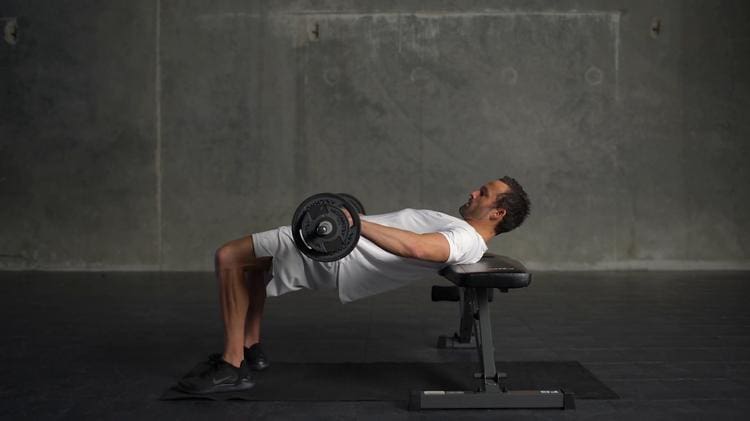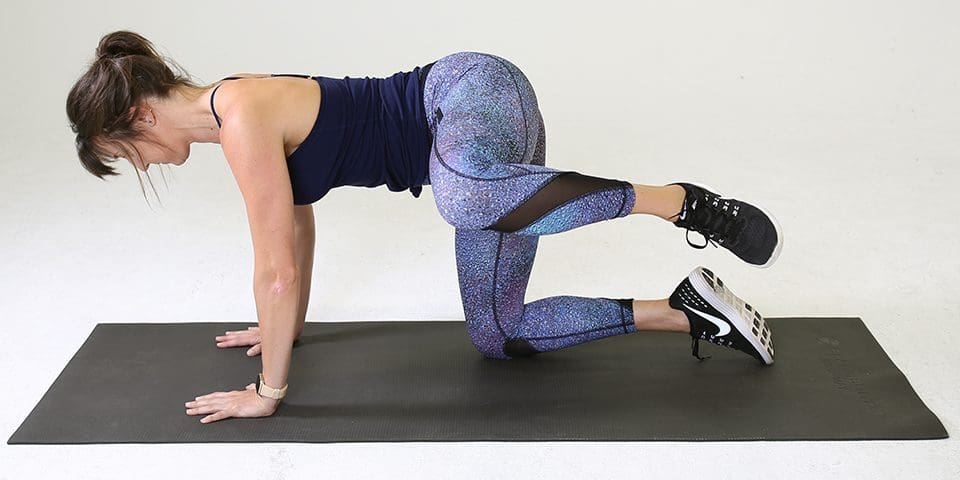Introduction
When everyday factors affect how many of us function, our back muscles begin to suffer. The back muscles in the cervical, thoracic, and lumbar section surround the spine and spinal cord, which helps the body stay upright and promotes good posture. The muscles allow the upper portions of the body to bend down and twist without pain while providing stability to the lower parts of the body. However, when the body ages or everyday activities cause issues, it can develop low back pain associated with weak back muscles. There are many ways to prevent these issues from escalating with various hyperextension exercises for low back pain. This 2-part series examines how low back pain affects the body and how different hyperextension exercises can help strengthen the back. Part 1 examines how hyperextension affects the body and how it is associated with low back pain. We mention our patients to certified medical providers that provide available therapy treatments for individuals suffering from chronic low back pain. We encourage each patient when it is appropriate by referring them to associated medical providers based on their diagnosis or needs. We understand and accept that education is a marvelous way when asking our providers’ crucial questions at the patient’s request and acknowledgment. Dr. Jimenez, D.C., makes use of this information as an educational service. Disclaimer
Low Back Pain Affecting The Body

Have you been dealing with aches and pains when bending down? Do you feel stiffness in your torso when twisting? Or have you experienced limited mobility in your hips? Many of these symptoms correlate with low back pain. Studies reveal that back pain is one of the most common issues in the emergency room. Low back pain is associated with many factors that put pressure on the various muscles in the back and can lead to underlying conditions that can cause symptoms to make the body dysfunctional. Additional studies have revealed that chronic low back pain can have influenced overlapping risk profiles, which include:
- Stress
- Dietary habits
- Lifting heavy objects
- Musculoskeletal disorders
When these factors affect the back, many individuals will be in constant pain and take medication to relieve their pain. However, medicine can only go so far as it only masks the pain, but there are other ways to reduce low back pain and help strengthen the various muscles surrounding the low back.
An Overview Of Hyperextension (Part 2)
Biomedical physiologist Alex Jimenez explains how there are a couple of different variations that you can do to prevent low back pain. The first one is the elbows in front. The second one is the elbows in front while pointing them forward and keeping them pointed forward throughout the entire movement. The third one is the hands behind the head. And then the fourth variation is putting weight behind your back once you work up to this level. And then using that weight to put more stress on a pivot point. You can also hold the weight to your chest, but putting it behind your head gives you a further pivot point or a further point on the fulcrum, which are your hips putting more stress on your spinal rectors. The repetitions and frequency should be performed at the beginning of most workouts, before or after your abdominal exercises on leg days. You can use this exercise as a warmup before deadlifting or squatting. I’ll remember you don’t have to go as much weight or as many reps when you’re doing this on leg days. So we recommend starting with four sets of 20 reps and slowly working up to four sets of 40 reps. This seems like a lot, but it will be beneficial in the end.
Various Hyperextension Exercises For The Back
When it comes to low back pain, the various muscles are weak, which can lead to multiple symptoms affecting a person’s mobility. Luckily making small changes in a daily structure, like incorporating exercises that target the back, can be beneficial. Studies reveal that exercises targeting the back muscles can help strengthen the targeted muscles to have mobility and stability in the back. As a bonus, exercises combined with chiropractic treatments can help restore the body and allow the spine to be realigned. When it comes to back exercises, hyperextension exercises can help prevent low back symptoms from reoccurring and strengthen weak back muscles. Here are some of the various hyperextension exercises that benefit the back.
Reverse Flys
There are different variations of how to do reverse flys. You can pick a moderate or lightweight dumbbell or a resistance band. This exercise is great for the upper back muscles and rear deltoids.
- Sit in a chair where the dumbbells are in front of you. *For resistance bands, make sure the bands are under your feet.
- Pick up the dumbbells/resistance bands with the palms of your hands and bend forward.
- Squeeze the shoulder blades together, lift the arms to shoulder level with slightly bent elbows, and lower them.
- Repeat for three sets of 12 reps and rest in between.
Hip Thrust

Different variations to this exercise can help with the posterior muscles in the lower back. You can use barbells, dumbbells, resistance bands, or your body weight to strengthen your core back muscles.
- Lean against a bench with the knees bent and the feet flat on the floor.
- Rest the shoulder blades on the bench for support and have the weight placed near your core.
- Raise your body slightly by pushing your heels down to the floor and walking out slowly beyond your knees.
- Push through your heels to have your hips at shoulder level, hold for a second, and lower your hips back down.
- Repeat for three sets of 12 reps and rest in between.
Supermans
This exercise has two different variations and makes you aware of your back muscles. This exercise helps improve muscle mobility in all three sections of the back.
- Lay on the mat face down with your arms in front and your legs straight.
- Keep the head in a neutral position and raise both the arms and legs off the mat. This allows the body to be in a banana shape in a comfortable position. *If you want more challenge, lift the opposite arms and legs simultaneously.
- Hold for a couple of seconds for the upper and lower back and hamstrings to maintain their positions.
- Lower down with control.
- Repeat for three sets of 12 reps and rest in between.
Fire Hydrants

This exercise helps the lower back and glute muscles reduce the effects of low back pain and make it more challenging to use a resistance band.
- Be in a cat/cow position on your mat, allowing the wrist to be aligned under the shoulders and the knees to be aligned under the hips.
- Maintain a neutral spine while engaging the core.
- Squeeze the glutes and lift your right leg off the mat, keeping the knee at 90 degrees. *The hips should be the only ones moving to keep the core and pelvis stable.
- Lower the right leg down with control.
- Repeat for three sets of 12 reps and rest before repeating the motion on the left leg.
Conclusion
All in all, having low back pain doesn’t mean your life is over. Incorporating hyperextension exercises as part of your daily routine can help strengthen your back muscles and ensure that you won’t have reoccurring symptoms from low back pain. Making these small changes can lead to beneficial results in the long run for your health and wellness journey.
References
Allegri, Massimo, et al. “Mechanisms of Low Back Pain: A Guide for Diagnosis and Therapy.” F1000Research, U.S. National Library of Medicine, 28 June 2016, https://www.ncbi.nlm.nih.gov/pmc/articles/PMC4926733/.
Casiano, Vincent E, et al. “Back Pain – Statpearls – NCBI Bookshelf.” In: StatPearls [Internet]. Treasure Island (FL), StatPearls Publishing, 4 Sept. 2022, https://www.ncbi.nlm.nih.gov/books/NBK538173/.
Koes, B W, et al. “Diagnosis and Treatment of Low Back Pain.” BMJ (Clinical Research Ed.), U.S. National Library of Medicine, 17 June 2006, https://www.ncbi.nlm.nih.gov/pmc/articles/PMC1479671/.
Disclaimer
Post Disclaimer *
Professional Scope of Practice *
The information herein on "Various Hyperextension Exercises For Back Pain (Part 2)" is not intended to replace a one-on-one relationship with a qualified health care professional or licensed physician and is not medical advice. We encourage you to make healthcare decisions based on your research and partnership with a qualified healthcare professional.
Blog Information & Scope Discussions
Welcome to El Paso's Premier Fitness, Injury Care Clinic & Wellness Blog, where Dr. Alex Jimenez, DC, FNP-C, a Multi-State board-certified Family Practice Nurse Practitioner (FNP-BC) and Chiropractor (DC), presents insights on how our multidisciplinary team is dedicated to holistic healing and personalized care. Our practice aligns with evidence-based treatment protocols inspired by integrative medicine principles, similar to those found on this site and our family practice-based chiromed.com site, focusing on restoring health naturally for patients of all ages.
Our areas of multidisciplinary practice include Wellness & Nutrition, Chronic Pain, Personal Injury, Auto Accident Care, Work Injuries, Back Injury, Low Back Pain, Neck Pain, Migraine Headaches, Sports Injuries, Severe Sciatica, Scoliosis, Complex Herniated Discs, Fibromyalgia, Chronic Pain, Complex Injuries, Stress Management, Functional Medicine Treatments, and in-scope care protocols.
Our information scope is multidisciplinary, focusing on musculoskeletal and physical medicine, wellness, contributing etiological viscerosomatic disturbances within clinical presentations, associated somato-visceral reflex clinical dynamics, subluxation complexes, sensitive health issues, and functional medicine articles, topics, and discussions.
We provide and present clinical collaboration with specialists from various disciplines. Each specialist is governed by their professional scope of practice and their jurisdiction of licensure. We use functional health & wellness protocols to treat and support care for musculoskeletal injuries or disorders.
Our videos, posts, topics, and insights address clinical matters and issues that are directly or indirectly related to our clinical scope of practice.
Our office has made a reasonable effort to provide supportive citations and has identified relevant research studies that support our posts. We provide copies of supporting research studies upon request to regulatory boards and the public.
We understand that we cover matters that require an additional explanation of how they may assist in a particular care plan or treatment protocol; therefore, to discuss the subject matter above further, please feel free to ask Dr. Alex Jimenez, DC, APRN, FNP-BC, or contact us at 915-850-0900.
We are here to help you and your family.
Blessings
Dr. Alex Jimenez DC, MSACP, APRN, FNP-BC*, CCST, IFMCP, CFMP, ATN
email: [email protected]
Multidisciplinary Licensing & Board Certifications:
Licensed as a Doctor of Chiropractic (DC) in Texas & New Mexico*
Texas DC License #: TX5807, Verified: TX5807
New Mexico DC License #: NM-DC2182, Verified: NM-DC2182
Multi-State Advanced Practice Registered Nurse (APRN*) in Texas & Multi-States
Multistate Compact APRN License by Endorsement (42 States)
Texas APRN License #: 1191402, Verified: 1191402 *
Florida APRN License #: 11043890, Verified: APRN11043890 *
Verify Link: Nursys License Verifier
* Prescriptive Authority Authorized
ANCC FNP-BC: Board Certified Nurse Practitioner*
Compact Status: Multi-State License: Authorized to Practice in 40 States*
Graduate with Honors: ICHS: MSN-FNP (Family Nurse Practitioner Program)
Degree Granted. Master's in Family Practice MSN Diploma (Cum Laude)
Dr. Alex Jimenez, DC, APRN, FNP-BC*, CFMP, IFMCP, ATN, CCST
My Digital Business Card
RN: Registered Nurse
APRNP: Advanced Practice Registered Nurse
FNP: Family Practice Specialization
DC: Doctor of Chiropractic
CFMP: Certified Functional Medicine Provider
MSN-FNP: Master of Science in Family Practice Medicine
MSACP: Master of Science in Advanced Clinical Practice
IFMCP: Institute of Functional Medicine
CCST: Certified Chiropractic Spinal Trauma
ATN: Advanced Translational Neutrogenomics



